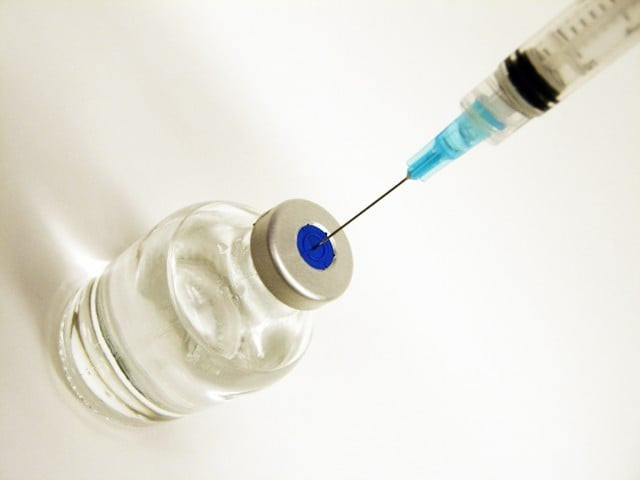Boosting immunity: IPV drive to be carried out in high-risk UCs next month
Health officials say 200 UCs have been identified in 23 districts

IPV will become part of routine immunisation campaigns from July.. STOCK IMAGE
According to health officials, the department has already carried out IPV campaigns in high-risk UCs of the two districts as well as in camps hosting displaced families from North Waziristan Agency.
“Polio drives could not be carried out in the past in tribal areas because law and order situation was not favourable. This is why during the IPV drives the focus was on children living in IDP camps,” said a health department official.
He added children from tribal areas had missed out on polio vaccination because of the security situation and refusals from parents, which is why IPV drives were conducted in IDP camps to boost their immunity to the virus.
Requesting anonymity as he was not authorised to speak to the media, the official said the government had been planning to begin province-wide IPV campaigns earlier but couldn’t do so for “certain reasons”. He however, declined to elaborate on those reasons.
He added IPV will become part of routine immunisation campaigns from July.
“Children will be administered polio vaccine via injections and this would be an addition to the vaccines we are already giving them in Sehat ka Ittehad,” he said.
According to an official involved in the polio eradication campaign, the government has identified 200 high-risk UCs where the IPV drive will be conducted in June.
He said the campaign will be held in 23 districts and around 0.3 million children will be immunised.
However, he emphasised that IPV can only strengthen a child’s immunity, it cannot eradicate the virus.
Expanded Programme on Immunization Acting Deputy Director Dr Taimur Shah told The Express Tribune IPV is effective because it will prevent paralysis even if a child is hosting poliovirus.
He confirmed the IPV campaign will be carried out in high-risk UCs of the province.
Published in The Express Tribune, May 7th, 2015.













COMMENTS
Comments are moderated and generally will be posted if they are on-topic and not abusive.
For more information, please see our Comments FAQ